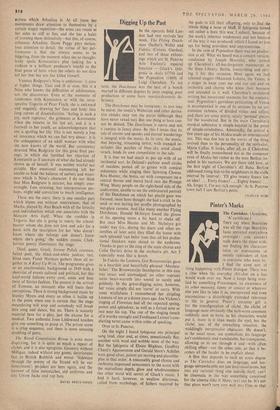Pinter's Marks
THEY say when Beardsley was all the rage Beardsley faces sprouted everywhere overnight: ' you couldn't walk down the street with- out finding his character- istics or expressions or merely reminders of him in everyone who went by. I find the same sort of thing happening with Pinter dialogue. There was a time when the everyday chit-chat on a bus would wash over inc. Now it keeps being over- laid by something Pinteresque, an awareness of its other meaning, funny or sinister or whatever else you like to take it as, unexpressed and even unconscious—a disturbingly extended relevance to life in general. Pinter's uncanny gift is for the transfiguration of cliché, the cliché of language most obviously (the well-worn comment suddenly seen to have, as his characters would put it, more in it than meets the eye), but the cliché, too, of the unexciting situation, the middlingly inexpressive character. He doesn't, in the usual sense, use symbolism; his language isn't emblematic and translatable, but transparent, allowing us to see through it and—with often chilling effect—out the other ,side, so that it be- comes all the harder to be explicit about.
A film that depends to such an acute degree as The Caretaker does on language, and lan- guage untranslatable not just into visual terms, but into any rational thing else 'outside itself, can't be cinematic in the way something conceived for the cinema (like /1 Mare, say) can be. It's not that plays won't turn very well into films or that








































 Previous page
Previous page